Tout au long du programme, les étudiants développent des compétences pratiques en programmation, en ingénierie des données et en apprentissage automatique. Ils réalisent des projets concrets pour acquérir une véritable expérience industrielle. Les étudiants enrichissent leur trajectoire professionnelle en acquérant une expérience inestimable grâce à des stages ou des apprentissages.

Tout au long du programme, les étudiants développent des compétences pratiques en coding, data engineering et machine learning. Ils réalisent des projets concrets pour acquérir une véritable expérience industrielle. Les étudiants enrichissent leur parcours professionnelle en acquérant une expérience inestimable grâce à des stages ou des alternances.

Notre formation est classée parmi les meilleurs Masters, MS & MBA Intelligence Artificielle de France:
Notre formation est classée parmi les meilleurs Masters, MS & MBA Intelligence Artificielle de France:
Leader en data et IA en France, DSTI propose un programme de « Applied Bachelor » à RNCP 6. Nos programmes « Applied MSc » sont à RNCP 7. Ils sont également labellisés 3IA Cote d’Azur. Enfin, DSTI est accrédité Qualiopi, affirmant la qualité de nos process de formation.
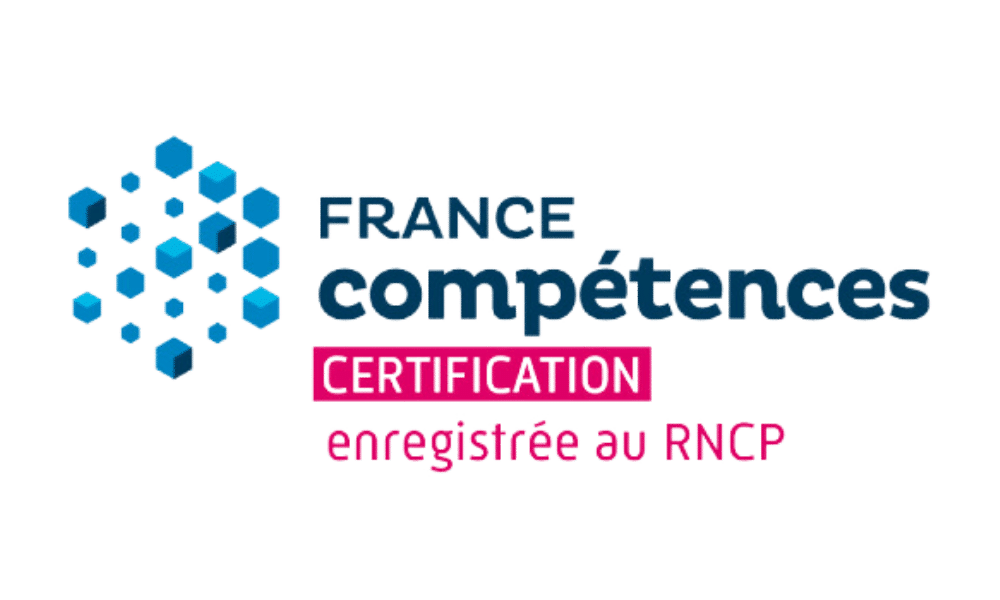

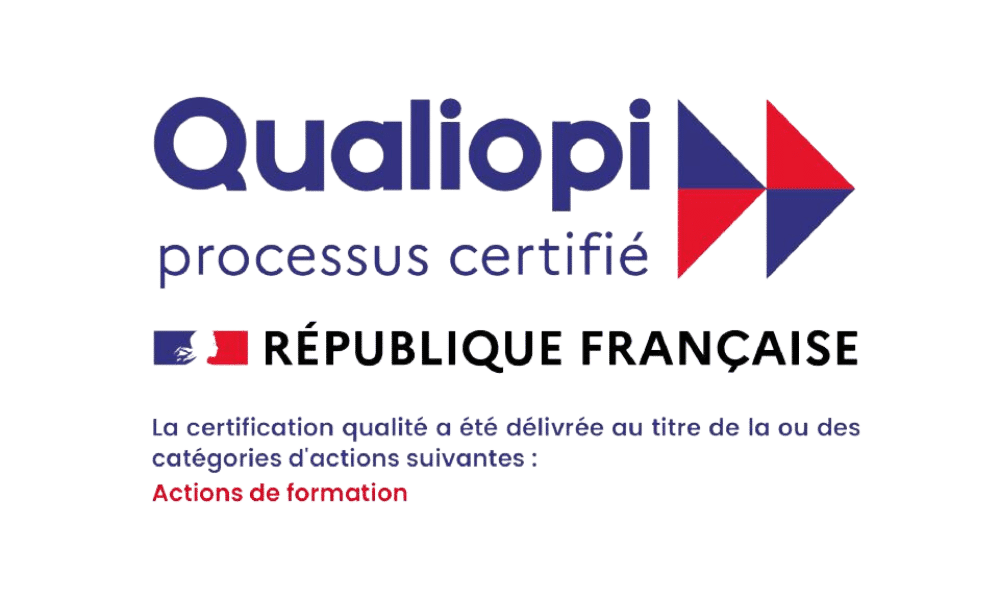
Voici les principaux objectifs du programme Applied MSc in Data Engineering for AI:
Acquérez des connaissances approfondie et des compétences pour créer et surveiller les infrastructures IT et Big Data.
Explorez le monde de DevOps et mettez en place des cadres d'intégration continue pour améliorer votre processus de création et de déploiement de logiciels.
Apprenez les langages de programmation clés et les bibliothèques pour le machine learning et le deep learning appliqués, perfectionnez vos capacités à construire et déployer des modèles complexes pour des applications pratiques.
Renforcez vos capacités à créer et gérer des clusters de données et de calcul hautement distribués tels que Hadoop ou Spark, permettant une manipulation efficace et efficace des données à grande échelle.
Le programme de l’Applied MSc in Data Engineering for AI propose 120 ECTS. Il comprend 780 heures d’enseignement, équivalent à 90 ECTS, y compris 75 heures de DSTI Warm Up pour la compétence technique et 50 heures supplémentaires de sessions de soutien. Pour finir, que ce soit à travers un stage ou un apprentissage, évalués à 30 ECTS, les étudiants se voient offrir une expérience concrète en data engineering.
24-34
Tranche d’âge moyenne
77%
d’étudiants internationaux
7+
projets pratiques
3
Préparation aux certifications internationales
DSTI propose l’Applied MSc in Data Engineering for AI en deux modes : ‘Formation initiale‘ et ‘Formation continue‘

La formation initiale est conçue pour les étudiants de moins de 30 ans qui sortent de l’école ou de l’université et les prépare à devenir des professionnels compétents en matière de données. Vous avez le choix entre deux options : temps plein ou temps partiel (apprentissage).
Pour les débutants en Data Engineering, nous suggérons le mode Plein-temps de 2 ans avec des options pour deux stages liés aux données, le second étant obligatoire.
Le mode apprentissage combine travail et études à temps partiel, ouvert uniquement aux étudiants de l’UE ou à ceux qui ont un visa de long séjour en France. Lisez les détails avant de postuler.
Pour les professionnels généralement âgés de 30 ans ou plus, la Formation Continue équilibre croissance de carrière et engagements professionnels. C’est parfait pour ceux ayant une expérience pertinente ou une formation en technologie, permettant une réalisation flexible de l’Applied MSc in Data Engineering for AI sur le campus ou en ligne.

Dans le cadre de l’apprentissage accéléré, les étudiants terminent les cours en 9 mois environ, puis effectuent un stage de six mois ou trouvent un emploi dans le domaine de la data, ce qui permet de réduire le délai de mise sur le marché
SPOC est idéal pour les étudiants qui concilient études et travail régulier. Les cours, réalisé entre 15 et 36 mois grâce à des conférences enregistrées, peuvent être complétés par des sessions en ligne en direct si disponibles. La durée du cours est flexible en fonction des besoins de l’étudiant.
DSTI propose une formule ‘Alternance à temps partiel‘ ou ‘Contrat de Professionnalisation‘. Cette option est idéale pour les personnes de plus de 30 ans, les francophones et les citoyens de l’UE/EEE ou les titulaires de visas de long séjour en France.
DSTI provides warm-up courses for the Applied MSc in Data Engineering for AI, ensuring all students, regardless of background, start with equal understanding of data analysis potential.
The Distributed & Performance IT module in the Applied MSc in Data Engineering for AI programme teaches courses including Amazon AWS, Microsoft Azure, Web and Software Engineering, Python Machine Learning Labs, and Semantic Web technologies for developing data science skills.
This course in the MSc in Data Engineering for AI programme provides preparation for the AWS Certified Solutions Architect – Associate Certification.
This course provides a comparative overview with Amazon AWS and focuses on Microsoft Azure Services relevant to data lakes and data pipelines.
A course that covers representing and querying web-rich data using RDF and SPARQL, introducing semantics in data using RDFS and ontologies, and tracing and following data history using VOiD, DCAT, and PROV-O.
In this course, students will learn about Object-Oriented Design and Design Patterns using Java programming.
A course that teaches data cleaning and preparation, data structures, and machine learning tools such as Pandas, Matplotlib, Scikit-learn, Keras, and Numpy, as well as Flask and OpenCV for web applications.
This course provides a comprehensive understanding of enterprise programming by covering topics such as Object Oriented Programming, Software Architecture through UML, and the fundamentals of Java and Scala development.
The Data Management module covers SQL data wrangling, data warehousing, ETL, graph and document NoSQL databases, big data ecosystems by Adaltas, and data pipeline parts 1 and 2.
A course that covers the fundamentals of relational databases, advanced SQL queries, stored procedures, triggers using T-SQL, dynamic SQL, and their applications with Microsoft SQL Server for data wrangling and manipulation.
A course that covers the design and implementation of a data warehouse, structuring an Extract, Transform, Load process, and their applications using Microsoft SQL Server in stand-alone and cluster deployments.
A course that provides preparation for the Neo4j certification, covers graph-based problem modelling, and implementation with the Neo4j graph database for NoSQL data management.
A course that covers the fundamentals of MongoDB databases, collections, and documents, advanced MongoDB queries and aggregations, MongoDB data architecture, and their applications using MongoDB and Robo3T for NoSQL data management.
A course that covers HDFS, scheduling & resource management, workflow management & ETL, dataflow management, scalable enterprise serial bus, real-time processing with SPARK, machine learning, and data exploration & visualization.
This course in Applied MSc in Data Engineering for AI covers XML dataflow, JSON transformations, and cloud-based solutions with Glue in AWS and Apache Kafka and Beam for open-source solutions.
Our comprehensive module covers essential topics for successful IT project management. It delves into project management principles using both PMP-PMI and Agile methodologies, along with data privacy and security frameworks. The module also explores CRM Data Management, Cybersecurity, and DevOps.
The course explores the principles and frameworks of data privacy and security, encompassing EU and USA regulations such as GDPR, Safe Harbour & Successors, as well as highlighting the distinctions between common law and code law.
The course includes a study of Project Management Body of Knowledge (PMBOK) and Agile methodologies such as Kanban, quality metrics and training for PMP-PMI certification.
The course focuses on preparing for the Microsoft Power Platform Functional Consultant (PL-200) certification, and its practical applications in managing Customer Relationship Management (CRM) data.
A course that focuses on the various tools and technologies involved in DevOps, including Nagios, Consul, Docker, Ansible, GitHub, and Continuous Integration with Jenkins and Kubernetes.
A course that covers topics such as system security design patterns, infrastructure security, data at rest and in-transit encryption, and code safety to provide a comprehensive understanding of how to protect computer systems and networks from cyber threats.
After this module, students will gain a comprehensive understanding of the mathematical and statistical foundations of data science, as well as practical skills in big data processing and machine learning.
This course covers essential mathematical concepts including Calculus, Linear Algebra, Trigonometry and Complex Numbers to provide a strong foundation for advanced data science applications.
This course covers the essential concepts of Probabilities and Distribution, Descriptive Statistics, and Visualisation techniques, and how to apply them using the R programming language.
A course that teaches how to import and manipulate large datasets with R, select the best data structures, transform, visualize, explore and model data.
A course that covers the fundamental concepts of perceptron’s layers, weights, biases, hyperparameters, activation and cost functions, optimization algorithms, backpropagation, learning mechanism, classification and regression, and its application in Python using TensorFlow.
A course that covers advanced topics such as Recurrent Neural Networks, Long Short-Term Memory (LSTM), Residual Networks, Computer Vision and Natural Language Processing (NLP), Deep Learning on GPU, and their applications in Python using PyTorch.
After each course, students get 1-2 weeks for review, with support sessions available for queries. Professors answer doubts in these sessions, ensuring individual attention from DSTI.
Pour rester à jour sur les évolutions dans le monde des données, les étudiants peuvent se préparer aux certifications suivantes tout en complétant le Applied MSc in Data Engineering for AI.
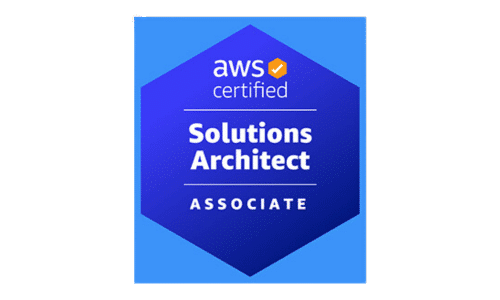

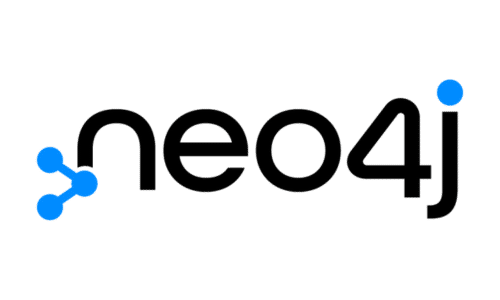
Voici certains des professeurs qui enseignent le Applied MSc in Data Engineering for AI.

Membre de l’industrie, Professeur
David Worms est le PDG et fondateur d’Adaltas, une entreprise spécialisée dans les services de conseil en big data et Hadoop, avec plus de 19 ans d’expérience dans l’industrie, travaillant sur divers projets technologiques.

Professeur
Le professeur Catherine Faron est une éminente professeure titulaire à l’Université Côte d’Azur. En tant que vice-directrice de Wimmics, une équipe de recherche conjointe entre le laboratoire I3S et le centre Inria.

Professor, Co-president of the Scientific Board
Fabien Gandon, chercheur principal à l’INRIA et à l’I3S Sophia Antipolis en France, se spécialise dans le Web sémantique, les ontologies, l’ingénierie et la modélisation des connaissances, les mémoires d’entreprise et d’autres domaines dans le domaine de l’informatique et des sciences informatiques.

AWS Educate, un programme d’Amazon Web Services (AWS), offre aux étudiants et aux éducateurs des ressources, une formation et un accès leur permettant de développer des compétences en informatique en nuage et de se préparer à des carrières dans ce secteur.
Azure pour l’Éducation fournit aux étudiants des logiciels Microsoft, des outils de développement et des ressources cloud pour l’apprentissage et les projets, y compris un bon de 100$.
O’Reilly est une plateforme offrant du contenu de qualité pour une étude efficace. Elle propose plus de 60 000 livres, 30 000 heures de vidéo, des événements en direct et des laboratoires interactifs couvrant le cloud computing, l’architecture logicielle, les langages de programmation, l’apprentissage automatique et plus encore.
Moodle offre aux étudiants un accès complet à leurs études : notifications, emplois du temps, cours, examens, sessions en direct, enregistrements de cours et soumissions de projets.
Une ressource qui permet aux étudiants de poser des questions ou de demander de l’aide pour des tâches académiques, professionnelles ou administratives. Les étudiants peuvent également revoir les réponses à tout moment si nécessaire.
Tous les étudiants de DSTI bénéficient d’un accès permanent à une adresse email d’ancien élève et reçoivent des licences Microsoft Windows et Office 365.
Les futurs étudiants en Master spécialisé en Data Engineering pour l’IA peuvent bénéficier d’opportunités de carrière exceptionnelles. La forte demande de Data Engineers qualifiés en Europe est évidente, puisque presque tous les étudiants reçoivent des offres de stage dans les six mois, avec une indemnité mensuelle d’au moins 1000 euros.
95%
des étudiants obtiennent une offre de stage dans les 6 mois
+ 1000 €
d’indemnité mensuelle moyenne
75%
des étudiants trouvent des stages en Europe
49k €
de salaire de départ moyen
1 600 €
en moyenne par mois pour une alternance
1 950 €
en moyenne par mois pour un Contrat Pro
2/3
des étudiants reçoivent des offres en CDI
+ 50%
des étudiants signent leurs contrats via DSTI.
La procédure d’admission à Data ScienceTech Institute (DSTI) est une démarche inclusive offrant à tous les candidats méritants une chance équitable. Ce processus d’admission détaillé est applicable à tous les modes d’étude.
Pour être éligible aux programmes Applied MSc de DSTI, les candidats doivent répondre aux critères suivants :
Les candidats doivent avoir étudié les mathématiques au lycée ou posséder une qualification équivalente.
Les candidats doivent avoir obtenu un diplôme de licence de 3 ou 4 ans ou équivalent d’une université reconnue.
DSTI propose trois façons pour les étudiants potentiels de démontrer leurs qualifications académiques. Les étudiants ne peuvent soumettre qu’un seul type de dossier académique parmi les trois options fournies. Cependant, la soumission de preuves de plus d’une qualification mentionnée ci-dessous améliorera vos chances d’admission.
Option 1: Notes minimales + Certificat de licence
Pour être pris en compte pour le programme de MSc Appliqué, les candidats doivent obtenir au moins les notes suivantes ou leurs équivalents : USA – GPA 2.0 ; Allemagne – 3.5 ; France – 12 ; Royaume-Uni – 2:2 (2ème classe, division inférieure) ; Inde – CGPA 6.5 ou classe supérieure de deuxième classe ; Chine – 67%.
Option 2: test d’admission standard + Certificat de licence
Pour maintenir la qualité des candidatures, nous apprécions les scores des tests standardisés. Pour le GRE, visez un minimum de 155 dans la section quantitative et un score total moyen proche de 300. Pour le GMAT, visez un score minimum de 42, avec un score total moyen approchant 600.
Option 3 : Examen d’entrée DSTI en ligne + Certificat de licence
Si les critères ci-dessus sont inaccessibles, envisagez de passer l’examen d’entrée DSTI en ligne depuis chez vous. Tout ce dont vous avez besoin est un ordinateur et une connexion internet stable. L’examen comprend deux sections: Mathématiques et Informatique.
Comme tous les cours sont enseignés en anglais, les étudiants doivent avoir un niveau B2 en anglais. DSTI évaluera la maîtrise de l’anglais lors de l’entretien d’admission.
Pour renforcer une candidature, les étudiants peuvent soumettre leurs scores IELTS ou TOEFL.
Les étudiants de DSTI doivent disposer d’un ordinateur portable Windows PC, et non d’Apple Mac, avec ces spécifications :
Au moins Intel Core i5 (ou équivalent AMD)
Minimum 8 Go, mais 16 Go recommandé
Minimum 512 Go, 1 To recommandé.
SSD préféré, mais un système à double lecteur avec SSD de 128 Go / 256 Go + disque magnétique de 512 Go ou 1 To est une bonne alternative.
Si seulement magnétique, il doit être au moins 7200 tr/min, pas 5400 tr/min.
NVIDIA préféré, mais pas essentiel
Toute version de Windows.
DSTI fournira une clé Windows 10 Professional lorsque les cours commenceront.
N’achetez pas MS Office 365; DSTI fournira une clé de licence lorsque les cours commenceront.
La procédure d’admission pour Data ScienceTech Institute (DSTI) est un processus rigoureux qui offre une chance équitable à tous les candidats éligibles.
Pour commencer votre candidature, parcourez nos différents programmes de Applied MSc pour trouver celui qui vous convient le mieux. Prenez un rendez-vous en ligne avec notre équipe pour obtenir des conseils et vérifier les frais de scolarité de chaque programme.
L’inscription se fait en ligne, et nous évaluons votre admissibilité. Vous devrez télécharger les documents habituels: une pièce d’identité, un CV et une lettre de motivation.
Après l’évaluation de la candidature initiale, DSTI invitera les candidats pour une suite du processus. Les candidats doivent fournir des documents spécifiés dans l’Option 1 ou 2. Si ces derniers ne sont pas disponibles, l’Option 3 peut être choisie.
Option 1: Relevés de notes et certificat de diplôme
Option 2: Tests standardisés et certificat de diplôme
Option 3: Examen d’entrée DSTI en ligne et certificat de diplôme
Si votre candidature est retenue, vous serez invité à passer un entretien d’admission de 20 minutes pour confirmer votre intérêt, votre adéquation avec les cours et votre maîtrise de l’anglais.
Si vous êtes admis, vous recevrez une décision officielle d’admission par email.
Pour plus d’informations, veuillez consulter notre processus d’admission détaillé.
DSTI – School of Engineering
Ecole privée d’enseignement supérieur
Leader en data et IA en France, DSTI propose un programme de « Applied Bachelor » accrédité RNCP 6 (niveau licence) Nos programmes « Applied MSc » détiennent une accréditation RNCP 7 (niveau master) De plus, les programmes Applied MSc DSTI sont labellisés par 3IA Cote d’Azur (Université Côte d’Azur) pour et détient une certification Qualiopi RNQ, affirmant l’excellence des processus qualité de l’établissement.



Le Data ScienceTech Institute (DSTI) a formé des partenariats stratégiques et des affiliations avec plusieurs organisations clés, notamment AWS, SAS, Microsoft, Arts et Métiers et 3iA Côte d’Azur. Ces partenariats sont essentiels car ils nous aident à maintenir notre programme à jour et nos ressources actualisées. Grâce à ces partenaires, nous sommes mieux équipés pour soutenir nos étudiants alors qu’ils font progresser leurs carrières dans la data.
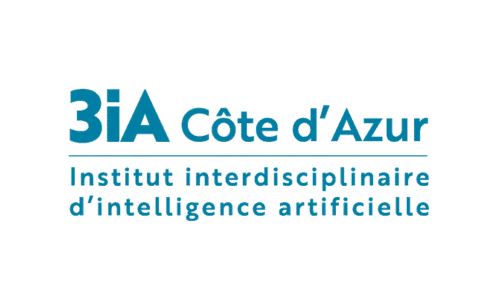

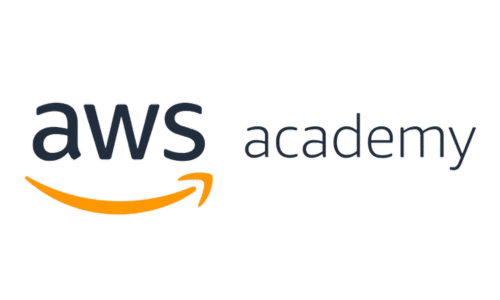
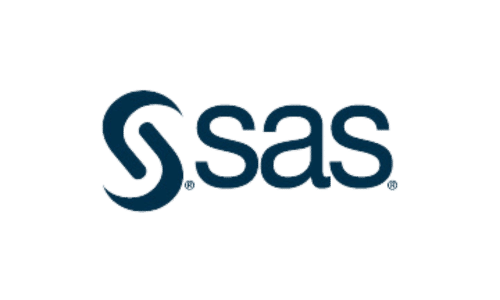

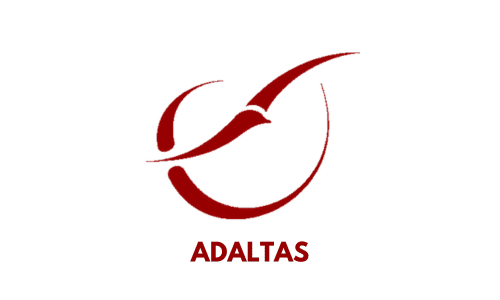

950 Route des Colles
Les Templiers
06410 Biot (Sophia-Antipolis)
Alpes-Maritimes, France
4 Rue de la Collégiale
75005 Paris
Île-de-France, France
+33 (0) 489 412 944
© 2024 Tous droits réservés.
Chez DSTI, nous organisons des rencontres individuelles en ligne avec les futurs étudiants. Ici, nous répondons à toutes leurs questions concernant nos cours de ‘Applied Bachelors’ et ‘Applied MSc’.
Chez DSTI, nous organisons des réunions de groupe en ligne où nous partageons des informations précieuses sur notre gamme de cours de Applied Bachelor et Applied MSc en données et IA.
DSTI organise des réunions de groupe en ligne qui fournissent des informations sur notre gamme de programmes de ‘Applied Bachelor’ et de ‘Applied MSc’ en données et IA.
Chaque mercredi de 14h à 18h CEST, le campus de DSTI à Paris organise une journée portes ouvertes pour tous, sans rendez-vous nécessaire. Les questions concernant l’admission, les cours ou d’autres sujets connexes sont les bienvenues. Nous sommes ravis de répondre à vos questions.
Les frais de scolarité sont applicables pour les sessions d’automne 2024 et de printemps 2025 | Applied MSc in Data Analytics | Applied MSc in Data Engineering for Artificial Intelligence | Applied MSc in Data Science & Artificial Intelligence |
Frais de scolarité totaux | € 15,600 | € 18,700 | € 18,700 |
Frais de scolarité annuels | € 7,800 | € 9,350 | € 9,350 |
*Pas de frais de scolarité pour les étudiants en mode apprentissage.

Vous souhaitez une carrière dans la data et l’IA? Téléchargez le programme de l’Applied MSc in Data Engineering for AI de DSTI pour découvrir comment !